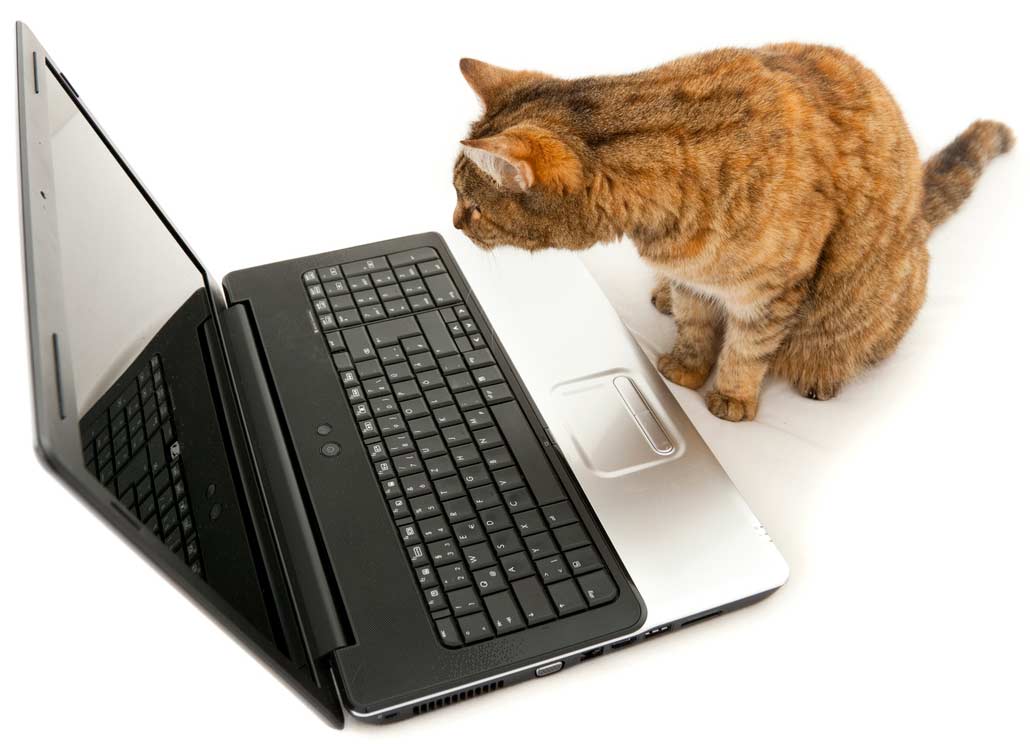The Dangers of Dr. Google

Have you heard of Dr. Google? This is a "doctor" that many people consult when their cat is showing a sign that something may be wrong.
It's as simple as punching your cat's symptoms into your computer's search engine and hitting "go," then reading what comes up.
The problem is that Dr. Google can be dangerous for your cat's health.
What's Wrong with Dr. Google?
The problems with using the internet to research your cat's conditions are many. They include:
- You may not always properly identify the signs of illness your cat is displaying. If you aren't trained in veterinary medicine, you may misidentify your cat's behaviors. For instance, your cat may strain in the litter box but nothing comes out. You might assume that he is constipated and enter that into the search engine. This might lead you to advice to feed your cat some pumpkin. However, your cat might truly be having trouble urinating, not defecating, and be suffering from a blocked urinary bladder, which is a life-threatening emergency that won't respond in the slightest to pumpkin.
- The information you find might not be from a reliable source. It can be difficult to know whether pet information found on the internet is from a good source or not. Many people have blogs and other sites with information about pets that isn't necessarily rooted in scientific studies. Instead, it may be based on one person's anecdotal experience, and it might not benefit your cat at all.
-
Some stuff you'll find is downright dangerous. Aspirin and Tylenol can both be fatal to cats. However, there are places on the internet where you will find them recommended. Other medications may be safe to give cats but at very different dosages than dogs or humans would take them. Still other drugs might be safe for some cats but not others because of individual disease processes.
- There may be signs of illness that you're missing. When a veterinarian evaluates a cat, he or she uses experience, education, specific questioning, and thorough examination to make a diagnosis. Most of that is missing when an internet search is done. For instance, you might punch in "cat limping" and get some results, but you are unaware that your cat also has an increased temperature, pale gums, and a painful abdomen. Your veterinarian would uncover all of that during an examination.
When the Internet Can Be Helpful
Finding reliable sites with cat information that you can review routinely is a great idea. Knowing as much as you can about various feline conditions and their signs helps you identify when you need to take your cat to the veterinarian. Understanding what substances, foods, and plants are toxic to cats helps you keep your cat safe.
Also, once your veterinarian makes a diagnosis for your cat, reading up about that condition on reputable sites can help you understand it and prepare you to ask your vet more questions as you proceed with treatment.
So if you are concerned that something isn't right with your cat, call your veterinarian first. He or she is still your best source of feline medical knowledge. And if you do decide to consult Dr. Google first, do so critically, keeping in mind its shortcomings.
You May Also Like These Articles:
Human Medications That Are Dangerous to Cats
Warning: Topical Medications Containing Flurbiprofen May Be Dangerous to Cats
Cats and Chocolate: Why is Chocolate Bad for Cats?
Are You Shortening Your Cat's Life? - Slideshow
Notice: Ask-a-Vet is an affiliated service for those who wish to speak with a veterinary professional about their pet's specific condition. Initially, a bot will ask questions to determine the general nature of your concern. Then, you will be transferred to a human. There is a charge for the service if you choose to connect to a veterinarian. Ask-a-Vet is not manned by the staff or owners of CatHealth.com, and the advice given should not delay or replace a visit to your veterinarian.




